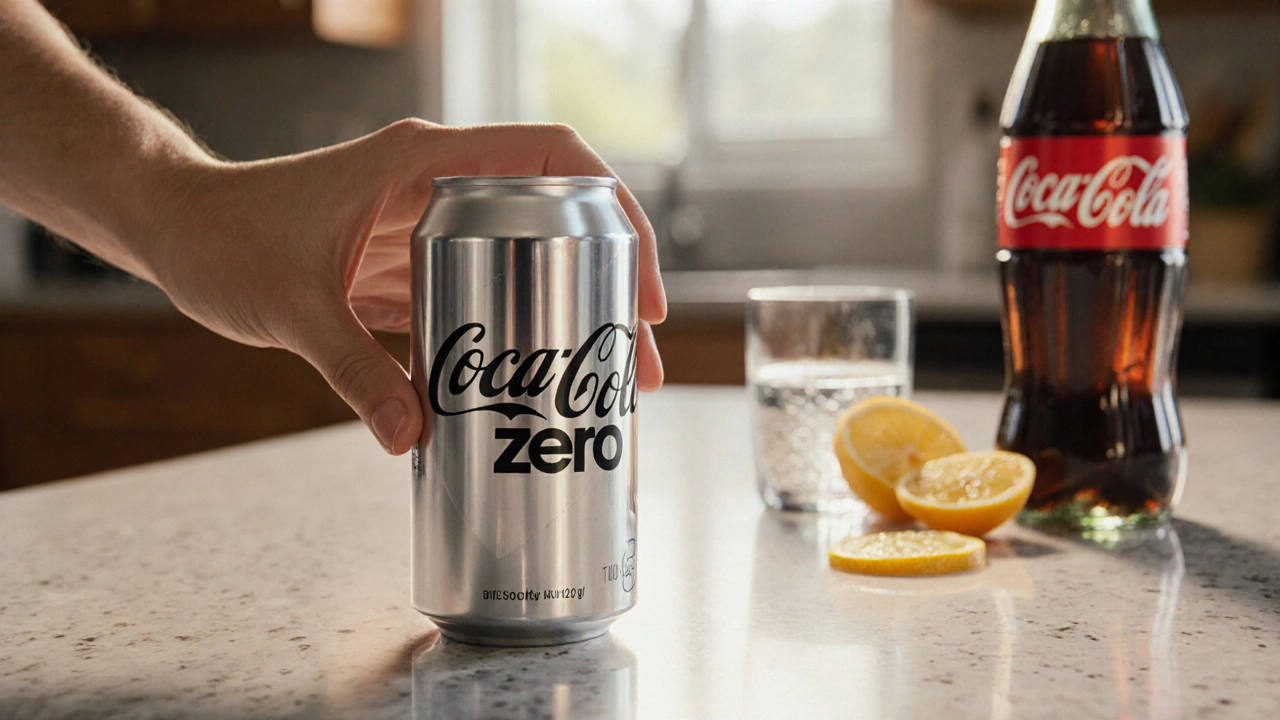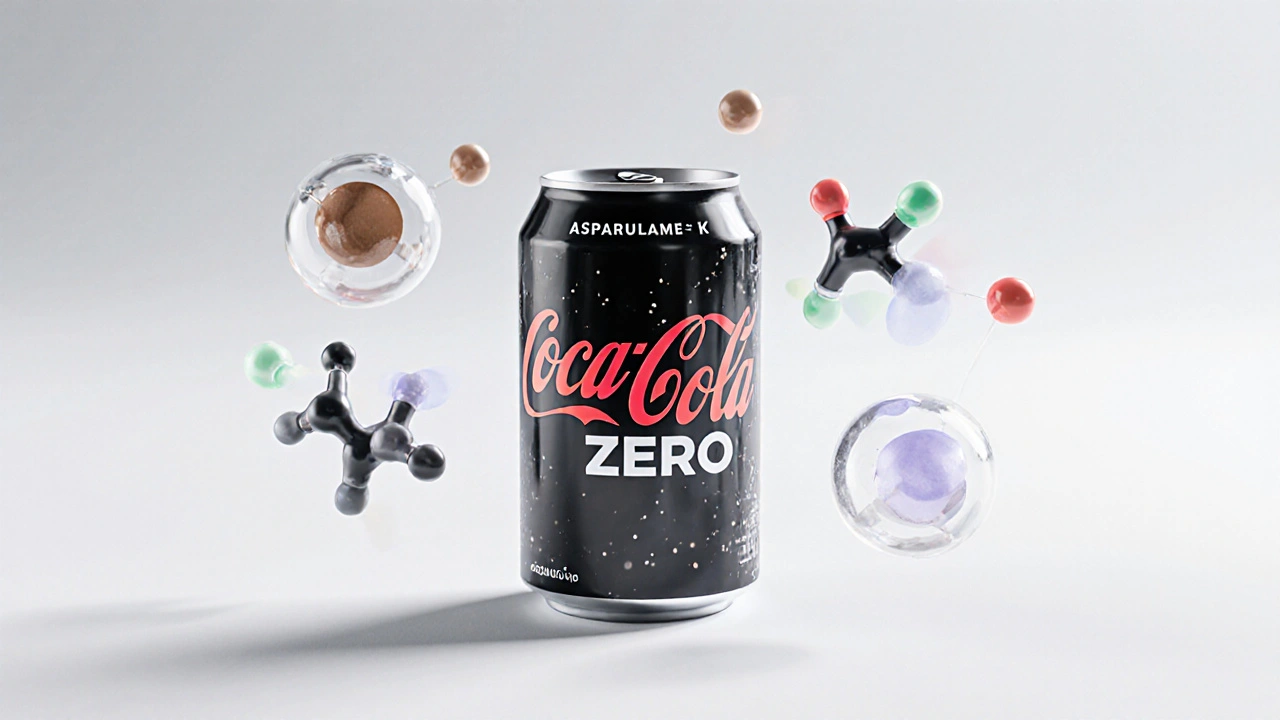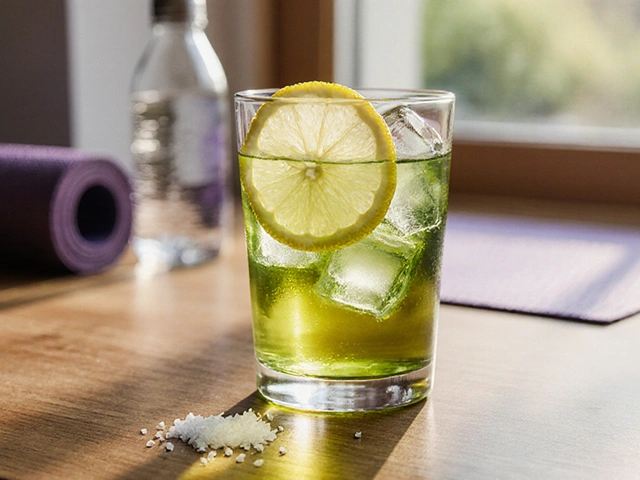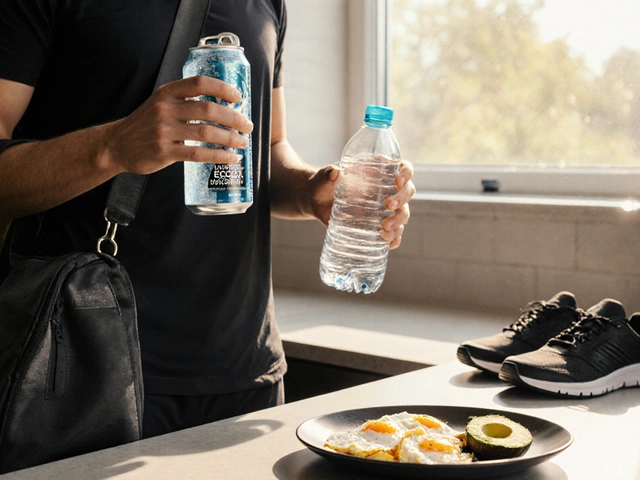Is One Can of Coke Zero a Day Safe? Health Facts & Guidelines

Caffeine Calculator for Coke Zero
Enter your caffeine intake to see your safe limit for Coke Zero.
People often wonder whether swapping a regular soda for a can of Coke Zero is a harmless habit or a hidden health risk. The answer isn’t a simple yes or no - it depends on what’s inside the can, how your body reacts, and the broader picture of your daily diet.
Key Takeaways
- A single 330ml can of Coke Zero contains about 34mg of caffeine and zero calories.
- The artificial sweeteners used (aspartame and acesulfame‑K) are approved by major health agencies, but some people may be sensitive.
- Moderation matters: most guidelines suggest keeping caffeine under 400mg per day for adults.
- Hydration, bone health, and blood pressure can be affected by excessive soda intake, even if it’s sugar‑free.
- One can a day is generally fine for healthy adults, but individuals with certain conditions should monitor intake.
What is Coke Zero?
Coke Zero is a sugar‑free, zero‑calorie soft drink launched by The Coca‑Cola Company in 2005. It mimics the taste of classic Coca‑Cola by using a blend of artificial sweeteners instead of sugar, aiming to satisfy cravings without the caloric load.
Nutritional Profile
A 330ml (12oz) can typically contains:
- Calories: 0kcal
- Caffeine: 34mg (about the same as a small cup of tea)
- Artificial sweeteners: aspartame and acesulfame‑K
- Sodium: 40mg
- Carbohydrates: 0g
Because it lacks sugar, the drink does not cause the rapid blood‑glucose spikes seen with regular sodas, making it a popular choice for those watching their weight or managing diabetes.

Caffeine Content and Its Effects
Caffeine is a natural stimulant found in coffee, tea, and many soft drinks. In moderate amounts, caffeine can improve alertness and physical performance. However, individual tolerance varies:
- For most healthy adults, up to 400mg per day is considered safe (roughly 12 cans of Coke Zero).
- Pregnant women are advised to limit intake to less than 200mg per day.
- People sensitive to caffeine may experience jitteriness, increased heart rate, or sleep disturbances even at lower doses.
If you already consume coffee, tea, or energy drinks, factor that caffeine into your total daily limit.
Artificial Sweeteners: Aspartame and Acesulfame‑K
Two sweeteners give Coke Zero its sweet taste without calories:
- Aspartame - about 200 times sweeter than sugar; approved by the FDA, EFSA, and WHO.
- Acesulfame‑K - also about 200 times sweeter; often used in combination with aspartame to mask any after‑taste.
Research to date shows that these sweeteners are safe for the general population when consumed within the established Acceptable Daily Intake (ADI). For aspartame, the ADI is 40mg per kilogram of body weight, meaning a 70kg adult could safely ingest up to 2.8g per day - far more than what’s in a single can.
Some individuals report headaches or digestive discomfort after consuming aspartame, though large‑scale studies have not confirmed a causal link. If you notice symptoms, consider an elimination trial.
Guidelines from Health Authorities
Both the American Heart Association (AHA) and the World Health Organization (WHO) focus primarily on sugar intake, encouraging people to replace sugary drinks with water or low‑calorie alternatives. When it comes to caffeine, they echo the 400mg per day ceiling for adults.
Regarding artificial sweeteners, the WHO’s 2023 review concluded that current exposure levels are well below safety thresholds, but it also advised moderation, especially for children.
Potential Impacts on Blood Pressure and Bone Health
Studies have examined whether diet sodas affect Blood Pressure. A meta‑analysis of 15 trials found a modest, non‑significant rise in systolic pressure among heavy soda drinkers, but the effect was stronger for sugary sodas than for diet varieties.
There’s also debate about the link between cola consumption and Bone Density. Phosphoric acid in colas can interfere with calcium absorption, but evidence suggests the impact is minimal for low‑calorie versions when overall calcium intake is adequate.

Practical Tips for Daily Coke Zero Consumers
- Track your total caffeine from all sources; aim to stay below 400mg.
- If you’re pregnant, limit to one can (34mg) plus any other caffeine.
- Stay hydrated with water; use Coke Zero as a flavor boost, not your main fluid.
- Watch for any personal sensitivity to aspartame or acesulfame‑K.
- Balance your diet with plenty of whole foods rich in calcium, potassium, and fiber.
Comparison Table: Coke Zero vs. Regular Coke vs. Diet Coke vs. Water
| Attribute | Coke Zero | Regular Coca‑Cola | Diet Coke | Water |
|---|---|---|---|---|
| Calories | 0kcal | 139kcal | 0kcal | 0kcal |
| Sugar (g) | 0 | 35g | 0 | 0 |
| Caffeine (mg) | 34 | 34 | 46 | 0 |
| Artificial Sweeteners | Aspartame, Acesulfame‑K | None | Aspartame | None |
| Sodium (mg) | 40 | 45 | 40 | 0 |
| Phosphoric Acid | Yes | Yes | Yes | No |
Bottom Line: Is One Can a Day OK?
For most healthy adults, sipping a single can of Coke Zero each day fits comfortably within recommended caffeine limits and stays far below any concerning exposure to artificial sweeteners. The drink can serve as a low‑calorie alternative when you want a soda taste without sugar.
However, keep these points in mind:
- If you already consume coffee, tea, or energy drinks, add the 34mg of caffeine to your total.
- People with hypertension, anxiety disorders, or caffeine sensitivity should monitor how they feel.
- Pregnant or breastfeeding women might choose to limit consumption to a few cans per week.
- Rely on water for the bulk of your hydration; soda should be an occasional treat.
By staying aware of your overall diet and listening to your body, a daily Coke Zero can be part of a balanced lifestyle.
Frequently Asked Questions
Does Coke Zero contain any sugar?
No. Coke Zero is formulated with artificial sweeteners instead of sugar, so it provides zero grams of sugar per serving.
How much caffeine is safe for an adult?
Most health agencies consider up to 400mg per day safe for healthy adults. One can of Coke Zero contributes about 34mg, roughly 8% of that limit.
Are the sweeteners in Coke Zero linked to cancer?
Current scientific consensus, including evaluations by the FDA and WHO, finds no credible evidence that aspartame or acesulfame‑K cause cancer at typical consumption levels.
Can drinking Coke Zero affect my bones?
The phosphoric acid in colas can slightly reduce calcium absorption, but the effect is minor for low‑calorie versions. Maintaining adequate calcium intake and limiting total soda consumption helps protect bone health.
Is Coke Zero a good choice for diabetics?
Because it has no sugar and zero calories, Coke Zero does not raise blood glucose. However, overall dietary patterns matter, so it should complement a balanced diet rather than replace nutrient‑dense foods.






Comments (13)
King Medoo
6 Oct 2025
When we consider the ethics of daily consumption, the line between convenience and moral responsibility becomes starkly evident 😊. A single can of Coke Zero may seem innocuous, yet it symbolizes the larger societal embrace of synthetic substitutes over natural sustenance. The allure of zero calories often masks the hidden costs borne by our endocrine and renal systems. Each milligram of caffeine subtly nudges the adrenal glands, encouraging a dependence that can erode mental equilibrium over time. Moreover, the artificial sweeteners, while approved, trigger metabolic pathways that remain incompletely understood, demanding a cautious respect for the unknown 😐. If we cherish the principle of doing no harm, we must scrutinize even the most benign‑looking beverages. The moral groundwork of public health rests upon personal choices that collectively shape the environment. By opting for water, we honor our bodies and reduce the downstream waste that plagues our oceans. A habit of drinking Coke Zero daily can normalize a dietary pattern that prioritizes artificial taste over genuine nutrition. Such normalization contributes to a culture that undervalues whole foods and blinds us to the subtle health detriments of chronic exposure. The cumulative impact of phosphoric acid on bone mineral density, though modest per can, becomes significant when habits solidify. We must ask ourselves whether the fleeting pleasure of a sweet fizz outweighs the incremental risk to skeletal integrity. In the realm of caffeine, the 34 mg per can may appear trivial, but for the caffeine‑sensitive, it can precipitate jittery anxiety and disrupt sleep architecture. The principle of moderation, a cornerstone of many ethical frameworks, calls for deliberate restraint. Therefore, let us choose with awareness, celebrate prudence, and recognize that health is a shared moral venture 🌱.
Rae Blackburn
15 Oct 2025
This is a hidden agenda no one talks about it feels like a cover up by the soda industry they want us addicted to caffeine and sweeteners they control our choices
LeVar Trotter
24 Oct 2025
From a pharmacokinetic perspective, the caffeine absorption rate from a 330 ml Coke Zero approximates 1.5 mg/kg body mass per hour, aligning with the standard ADI for caffeine. The artificial sweeteners aspartame and acesulfame‑K each possess distinct metabolic fates: aspartame undergoes hydrolysis to phenylalanine, while acesulfame‑K is largely excreted unchanged. Epidemiological data suggest a non‑significant correlation between moderate diet‑soda intake and systolic blood pressure variance, though confounding variables persist. It is prudent to integrate these biomarkers into a holistic risk assessment when advising patients with comorbid hypertension or anxiety disorders.
Seraphina Nero
2 Nov 2025
That makes sense, thanks for breaking it down in simple terms. I’ll keep an eye on my total caffeine.
Megan Ellaby
11 Nov 2025
i think its cool but i also heard some peoples get headaches after drinking it idk maybe its just me but i notice my stomach feels weird sometimes also the can lol lol lol
E Jones
20 Nov 2025
Let me tell you, the soda conglomerates have been weaving a subtle web of dependency for decades. The 34 mg of caffeine per can is deliberately calibrated to keep you alert just enough to crave more, while the sweeteners hijack your reward pathways, creating a feedback loop of pleasure and craving. Behind the glossy marketing lies a coalition of lobbyists ensuring that regulatory bodies maintain lax limits on artificial additives, all while you sip your “zero‑calorie” lifeline. The phosphoric acid, silently eroding calcium reserves, is another insidious ingredient that manifests only after years of cumulative exposure. When you pair this with other caffeine sources-coffee, energy drinks, even chocolate-you inadvertently surpass the safe threshold, setting the stage for cardiovascular strain. The narrative of “harmless” is a constructed myth, propagated by profit‑driven narratives designed to keep consumers complacent. Consider the hidden costs: increased dental erosion, potential metabolic disruptions, and the ecological impact of plastic waste. If you truly value your health, you must recognize the grand design and make a conscious shift towards water or naturally flavored infusions. The freedom to choose is often an illusion when the industry controls the palate and the policy.
Addison Smart
29 Nov 2025
Balancing personal preference with scientific guidance is essential. While a single can of Coke Zero generally stays within caffeine limits for most adults, individuals with heightened sensitivity or specific health conditions should tailor their intake accordingly. It is also valuable to view the beverage as part of a broader dietary pattern rather than an isolated element. Substituting occasional soda with water can improve overall hydration, which in turn supports metabolic functions and kidney health. Moreover, staying vigilant about total caffeine from coffee, tea, and energy drinks prevents inadvertent overconsumption. For pregnant individuals, adhering to the 200 mg daily recommendation ensures fetal safety. Ultimately, mindful consumption-paired with regular monitoring of how your body feels-creates a sustainable approach to enjoying diet sodas without compromising well‑being.
David Smith
9 Dec 2025
Sounds like common sense, but people love drama over facts.
Lissa Veldhuis
18 Dec 2025
Only the clueless think it’s perfectly fine.
Michael Jones
27 Dec 2025
In the grand theater of human existence, each beverage choice is a micro‑act that reflects our relationship with control, pleasure, and the unknown; thus, sipping a Coke Zero becomes a philosophical inquiry into the balance between desire and restraint.
Abert Canada
5 Jan 2026
Hey folks, just wanted to chime in that I’ve swapped my daily soda for sparkling water with a splash of fruit juice, and the cravings have been way more manageable. If you’re looking for a community challenge, let’s do a 30‑day water swap together.
Xavier Lévesque
14 Jan 2026
Oh great, another “join my challenge” post-because we totally need more pressure to drink more water, right?
Thabo mangena
23 Jan 2026
I commend anyone who approaches their dietary choices with thoughtful consideration; may your journey toward balanced hydration be both rewarding and enlightening.